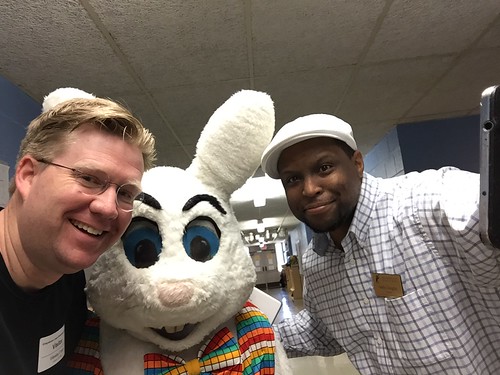
Let's say you're trying to sell something... say, a comfy chair.
You'd probably encourage your prospective customer to sit in the chair. You'd point out the chair's features: great frame, reputable manufacturer, durable fabric, etc. But by forgetting to use one of the most persuasive words in the English language, you'd run the risk of blowing the sale.
What's the magic word? "Because."
To understand how "because" can influence others, I invite you to spend a few minutes with Vicki Kunkel, author of Instant Appeal: The 8 Primal Factors That Create Blockbuster Success. Kunkel tells the story of helping a client who had a furniture store. While the salespeople were very friendly and attentive, customers were not buying.
The problem was what "ethologists call a fixed action pattern (FAP) response--an intricate sequence of behaviors set in motion by a trigger feature. A trigger can be specific words, sounds, colors, actions, visual patterns, gestures, or even the beauty or ugliness of a person or object. An example of a fixed action pattern response is yawning; when we see someone yawn, we almost always yawn too. But it's not the yawner who makes us yawn; it's a yawning trigger within each of us that makes us yawn."
In the case of the furniture store, the salespeople weren't attracting customers--they were triggering people in the store to retreat. As Kunkel explains, "a salesperson who is trying too hard is a predator to a customer. And, just like the lizard, customers run from the predator--in this case, the sales associate."
Kunkel's advice was to replace the negative automatic response with a positive one--that's right, to encourage the furniture salespeople to use "because."
She suggested that salespeople greeting customers say this: "May I offer you this brochure because we'd like you to have more information about our new store?''
The structure of the sentence--"take this because of that"--induces an innate and automatic response in humans. This response was beautifully demonstrated in a 1978 study by Harvard social psychologist Ellen Langer. Langer set out to determine "under what conditions people would allow her to cut into a long line at a copy machine."
When she used this sentence--''Excuse me, I have five pages. May I use the Xerox machine because I'm in a rush?''--94 percent of people would let her go ahead of them in line.
But even when Langer used this sentence--''Excuse me, I wonder if I could ask you a favor. May I skip ahead of you in line because I have to make some copies?''--people allowed her to skip the line.
Kunkel explains why: "Even when the reason is bogus, the trigger word "because" elicits an automatic and innate response to grant the favor! The response mechanism to this trigger is so engrained that even a silly reason gets a positive response."
For the furniture salespeople, using "because" made their pitches much more successful. "Simple phrases such as, 'You'd really like this couch because it is made of Italian leather,' or 'This glass table would look great in your home because the design will go with any decor,' resulted in a 39 percent increase in sales in just the first two weeks they were used regularly with customers."
"Because" works because, as Kunkel illustrates, "Trigger words are part of what I call the instant appeal response: positive, predictable actions that people take in response to a specific trigger."
Try this persuasive word next time you're trying to influence someone--because it works!


No comments:
Post a Comment